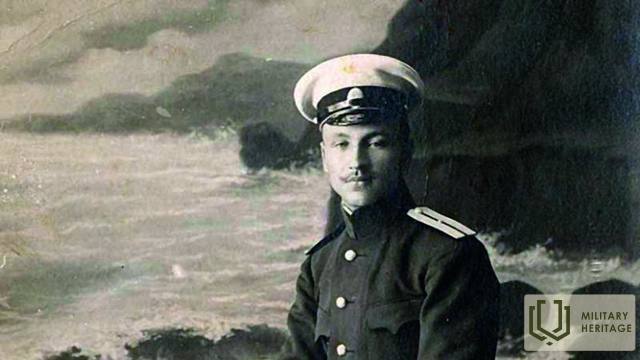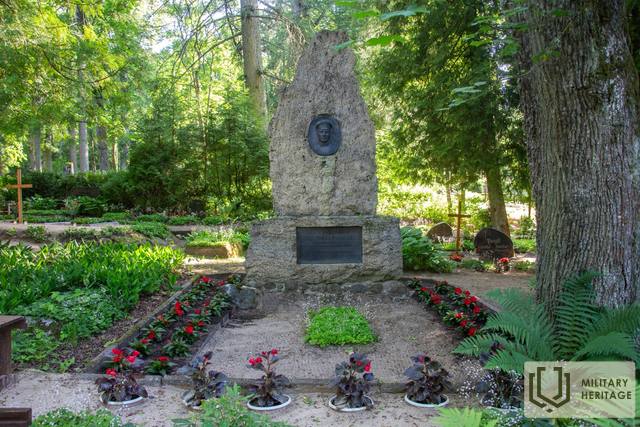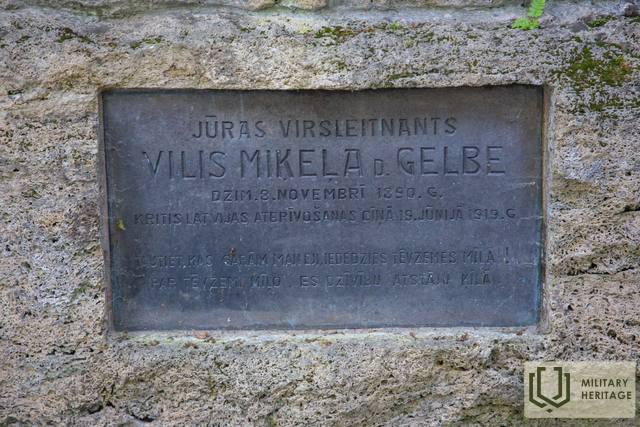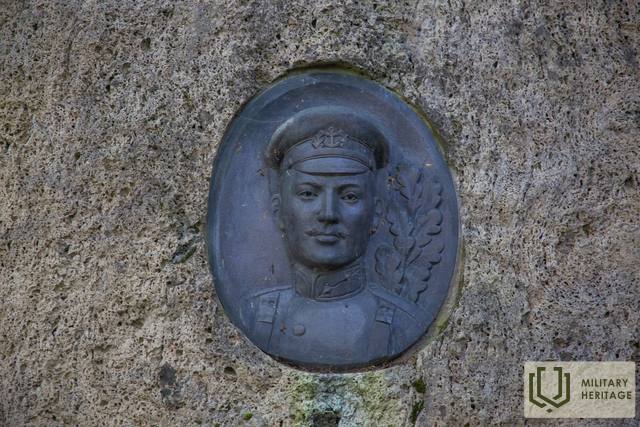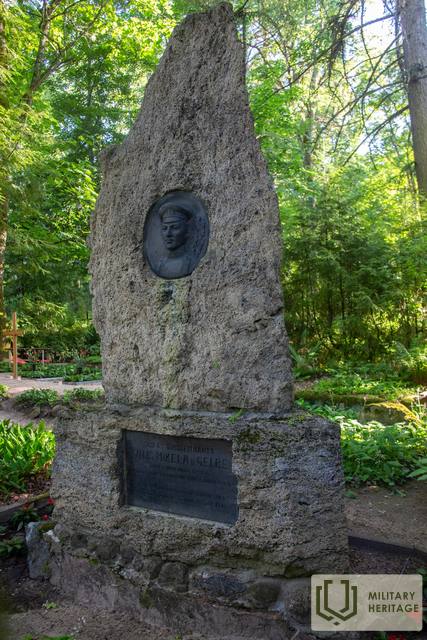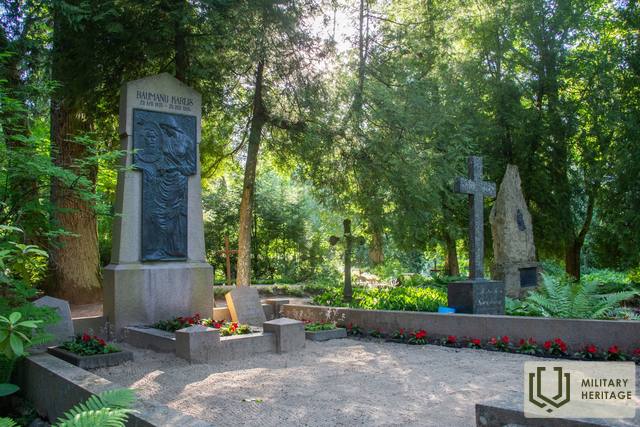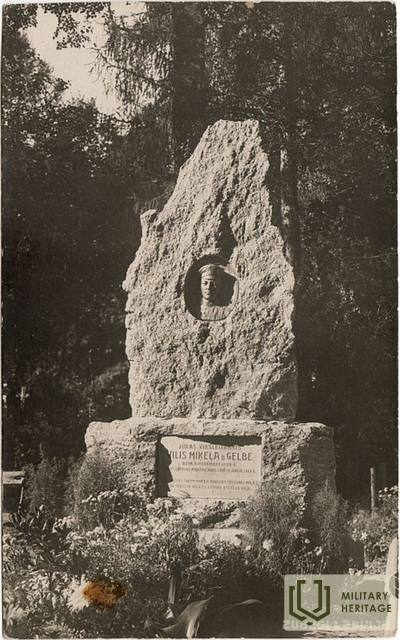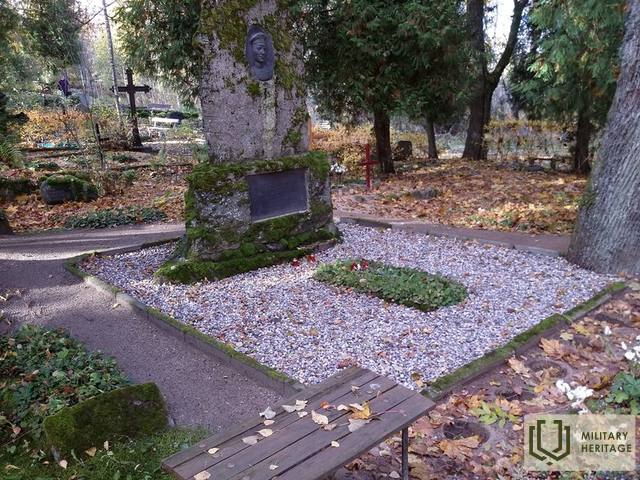Monument to the sea lieutenant, L.k.o.k. Vilis Gelb (1890-1919)
Memorialinis vieta
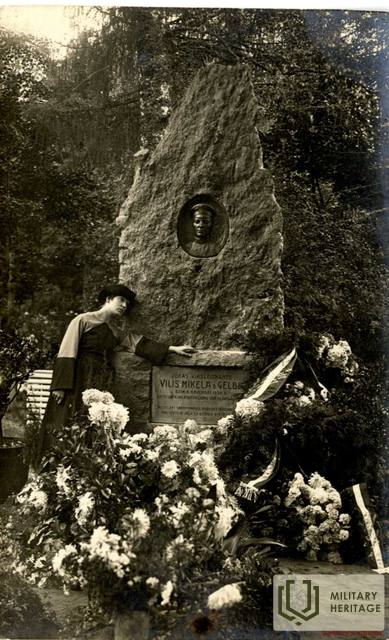

 90
90



Located in Limbažu Jūras iela cemetery, Jūras iela 56, Limbaži
The monument opened on September 10, 1922 by the then President of Latvia Jānis Čakste, on which the dedication of the poet Viļas Plūdonis to Vilis Gelb is read:
"Compatriots who pass by me, light up in the love of the fatherland,
for the beloved fatherland, I pledge my life."
Vilis Gelbe (1890-1919) was born in Kurzeme, Zemīte parish, but he is also closely related to the Limbaži side, because at the beginning of the Latvian War of Independence, he returned to Latvia from St. Petersburg and joined the North Latvian Brigade.
In May 1919, V. Gelbi commanded Limbaži, he became the military commandant of the area and was able to inspire local men and also very young guys to join the army.
V. Gelbe's activity at that time in Limbaži and its surroundings was very important, his duties included not only maintaining order in the city and its surroundings, but also mobilization, providing food for soldiers and horses, and solving many other issues that cannot be included in orders and instructions. The Commandant's team organized by him acted as a coordinated mechanism to provide the North Latvian Brigade with the most effective assistance possible. The commander's team went to the aid of the regular army in special cases, and he set an example for the new soldiers. V. Gelbe was the first Latvian army officer who proposed to award his subordinates with the III class of the Order of Imanta. There was no order yet. Imanta's name appeared in the open only on March 20, 1920, when the minister of defense, Karls Ullman, was presented with an outline of the establishment of the military order. However, the name of Lāčplėš was chosen for the order.
Vilis Gelbe died during the battles of Cēsis - on June 19, 1919, during a reconnaissance. Later, Gelb was awarded the Láčplēš War Order, however, historians believe that his contribution has not been properly appreciated until now. This is mainly explained by Gelbe's membership in the Northern Latvian Brigade.
The so-called Southern Latvian brigade, which was initially commanded by Oskars Kaplak, later Jānis Balož, competed with the Northern Latvian brigade, which was commanded by Jorģs Zemitāns.
Panaudoti šaltiniai ir literatūra:
https://www.sargs.lv/lv/vienibas-un-personibas/2016-11-25/mazak-zinamais-ziemelnieks-vilis-gelbe
https://www.lsm.lv/raksts/dzive--stils/vesture/izdota-gramata-par-brivibas-cinu-dalibnieku-vili-gelbi.a298469/
Susijusi laiko juosta
Susijusios temos
Susijusi istorija
Apie tautos patriotą pirmąjį leitenantą Vilį Gelbį
Pulkininko leitenanto Vilio Gelbės (1890-1919) likimas atspindi sunkią mūsų valstybės ir kariuomenės formavimosi situaciją bei šių įvykių vertinimą.
1918 m. lapkričio 18 d. paskelbus Latvijos valstybę, prasidėjo ir jos Nepriklausomybės karas bei ginkluotųjų pajėgų kūrimo darbai. Latvių karių savanorių priešakyje buvo Kuržemėje gimęs karinio jūrų laivyno leitenantas Vilis Gelbė.
Cėsių mūšio pradžia, eiga ir pabaiga
Pergalei Cėsių mūšyje buvo lemta tapti lūžiu latvių ir estų kovoje už savo šalies nepriklausomybę. Ši pergalė padarė tašką Andrievo Niedros vyriausybės ir vokiečių generolo Rüdigerio von der Goltzo planams užkariauti Baltijos šalis. Vietoj to Liepojoje savo veiklą atnaujino Laikinoji Latvijos vyriausybė, vadovaujama Kārlio Ulmanio.




